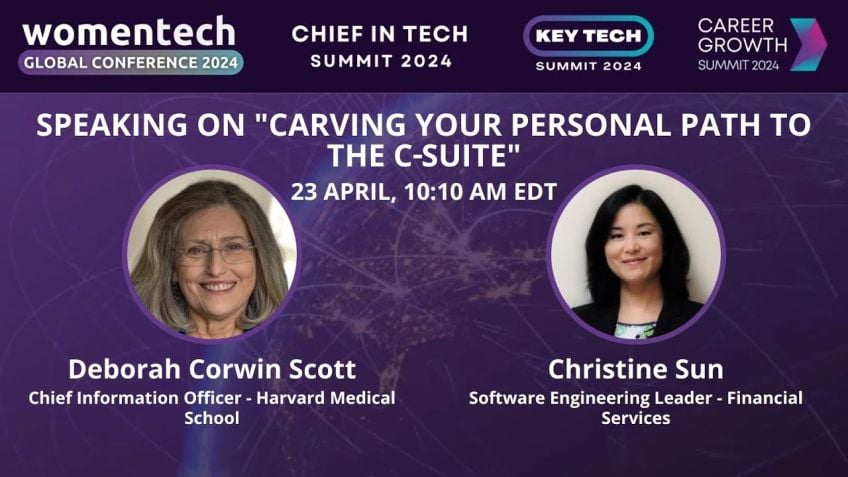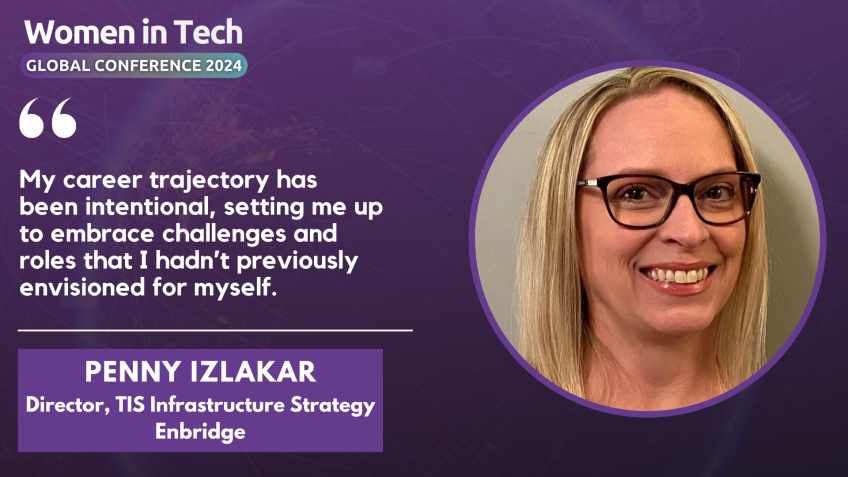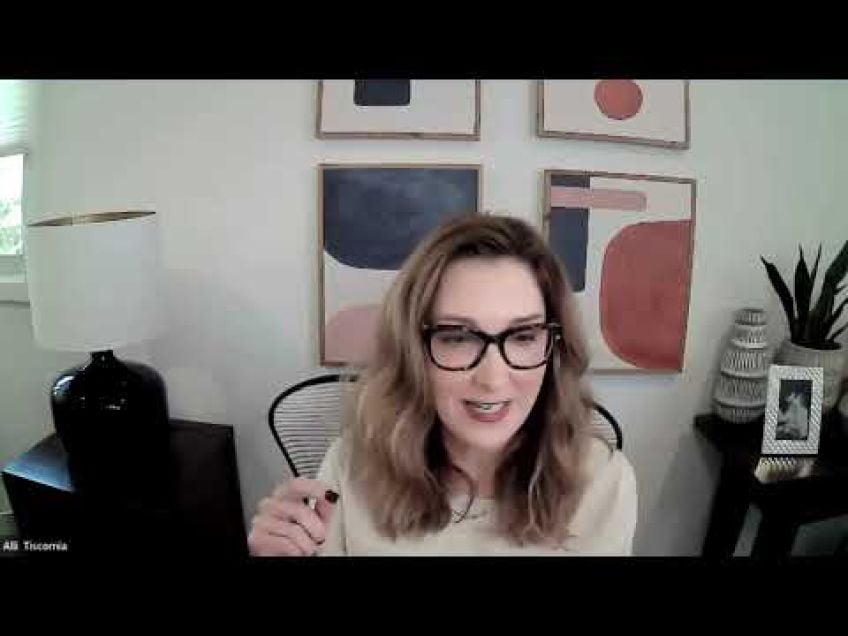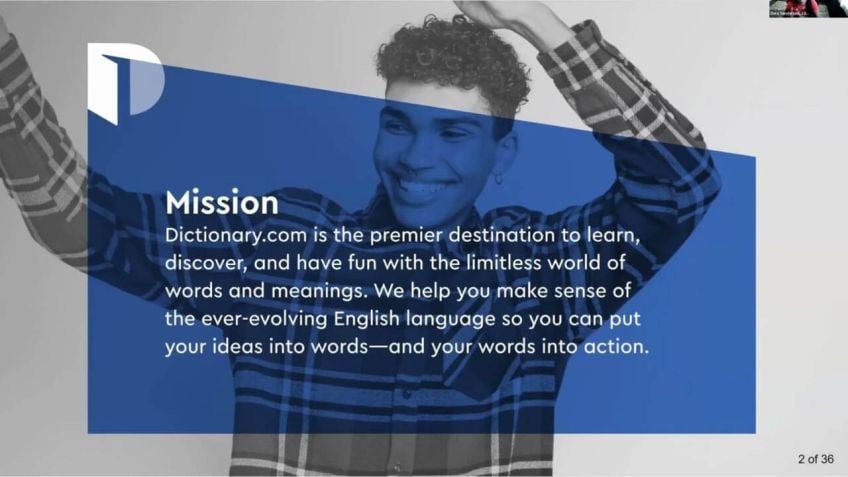Unconventional Career Paths : How Engineering + AI + media + marketing = CMO by Zeynep Inanoglu Ozdemir
Reviews
Leadership in Tech: The Unconventional Path to the C-Suite
Good morning, everyone. Today, I would like to share my thoughts on an unconventional path to leadership in the tech world, specifically in cybersecurity. As the current Chief Marketing Officer of Palo Alto Networks, my journey has been anything but linear. However, I believe this non-linear progression to senior leadership in tech has influenced who I am today and may offer insights for those on a similar journey.
From Software Engineer to CMO
My start wasn't related to marketing at all. Out of college, I worked as a software engineer. Later, I embraced the journey of completing a PhD in machine learning and signal processing at Cambridge University. My non-traditional path to the C-suite might be summed up by a few key experiences:
- Completing a PhD prompted a thirst for hands-on experiences leading me to the startup world.
- Moving from the startup to Google, I learned fundamentals of business and marketing.
- I later took the risk of leaving Google to become a media executive at a regional company, propelling my experience within marketing and management.
- My diverse experiences led me to my current role, none of which would have been as impactful, without developing specific skills throughout this journey.
Important Aspects of Advancing to Senior Tech Leadership Roles
Through my experiences, I’ve compiled four key aspects that have advanced my career and could potentially influence yours: developing grit and agility, risk-taking, cross-functional domain expertise, and driving impact beyond your swim lane. The future of leadership in tech may require a “renaissance leader” – someone who embraces a variety of knowledge and experiences.
Grit and Agility
Grit, the ability to stick with your goals despite difficulties, is a skill to develop early on in your career. From my experience, I formed grit during my PhD studies where pursuing something novel felt personal and the cost of giving up was too high. Agility, on the other hand, is the ability to continue solving difficult problems from different angles with the same enthusiasm each day.
Francis Davis, a professor of psychology at the University of Pennsylvania, even suggests that grit predicts success more than talent or IQ. This is especially relevant for women who reportedly score higher than their male counterparts in grit, according to recent research.
Calculated Risks
Women often hinder their progression by applying for 20% fewer jobs than men, despite similar behaviors, according to the LinkedIn Gender Insights Report. However, taking calculated risks in your career can, in fact, boost your growth prospects. Always evaluate your risks based on the potential impact and personal growth opportunities.
Cross-Functional Domain Expertise
Like the renaissance human who was well-rounded in all areas of knowledge, I believe tech leaders today must build cross-functional expertise. Understanding technologies and working closely with customers, for instance, are unique experiences that a marketer could use to their advantage.
Driving Impact Beyond Your Swim Lane
Making an impact beyond your expected duties is often the unspoken truth behind successful leaders. This might involve offering to spearhead projects outside your domain or jumping into initiatives where you can influence and shape outcomes.
Final Thoughts
The future of tech leadership is increasingly moving beyond traditional paths. Leaning into diverse experiences can help develop unique and essential leadership skills, influencing your impact and progression. In this fast-paced industry, using your own creativity and resources is fundamental to success.
Thank you so much for joining me today. Enjoy the rest of the conference and remember — the unconventional path may be the most rewarding.
Video Transcription
Good morning, everyone. Uh It's a pleasure to be here. I'm actually dialing in from San Francisco right now. We're here as a big team at the RS A conference, one of the largest cyber security conferences in the world. More than 20,000 people have showed up here in person.This is an incredible number when you consider the fact that we were spending most of the last two years in isolation. Uh I kind of wish we were all in person as well, but I hope that will happen soon too. Uh So about a month ago when I was asked to speak uh at the Chief and Tech summit here, I looked through the themes and tracks that were offered um trying to figure out what would be the most valuable topic for me to talk about. There was one track called the Path to the C Suite and it got me thinking about my own path to the C Suite and how untraditional it has really been. So, I'm currently the chief marketing officer, as Margo said, um of Palo Alto Networks. Interestingly, the starting point of my career was not related to marketing at all. Um my first job out of college was as a software engineer. After that, I took the arduous path of completing a phd in machine learning and signal processing, as Margot said at Cambridge University in the UK.
So you may wonder um how I went from being a 20 something working on a dissertation that is as technical as it gets as you can see on the screen. I wanted to provide a snapshot and being even quoted on the New Scientist magazine for some interesting research all the way to leading marketing uh for the largest cybersecurity company in the world. Yes. So that did involve some twists and turns which have probably defined who I am today in this talk. I want to give you a couple of tips on what has helped me on my journey. But let me give you a quick life story uh and fill in the blanks before I get to my main points. So I mentioned the phd S then as a Fresh phd graduate, I had a thirst for hands on experiences. So I immediately went into a small start up with 14 people. I was doing product management there. But as with all start ups, I was really wearing 2 to 3 different hats, very formative experience. I'll come to that later that start up got acquired by the world's largest and coolest tech company, obviously Google and that's where I really got to pivot and learn the fundamentals of business and marketing.
I did that for a while and at some point, I ended up taking a, you know, fairly bold risk. I left my stable and cool job to become a media executive at a smaller more regional media company running their transformation from broadcast media to digital this job while sort of uh smaller in in locality and location, gave me more scope uh and full PNL responsibility and the ability to manage engineering, marketing and content teams.
At a very young uh early stage in my career, I started through all these experiences, realizing at this point that one thing that I could do well was to use my technical data driven background to help companies transform. I thought it would be cool to do this for more organizations. So I started a chapter in enterprise B to B tech. I took up a number of customer facing, go to market roles where I worked directly with the world's largest enterprises, helping them solve some of their most challenging problems. This is where I learned what it takes to speak the same language as your customers. So let me stop there. Why am I telling you all of this? Well, because for someone who is running marketing for the largest cybersecurity company in the world, I've taken a fairly untraditional path with a range of roles that don't necessarily plot a very linear progression in marketing, yet a very seasoned leadership team thought that I should be the person for the job.
Was this an exception or perhaps an emerging pattern? So today, I want to explore with you for the rest of the time. What I think are some important aspects of advancing to senior level positions in tech. I would offer that the future of leadership in tech may require more of a renaissance leader. Someone who embraces cross functional knowledge and develops the ability to wear multiple hats. I would also offer that sometimes we get to build and develop the most relevant leadership characteristics through a very diverse set of experiences in a nonlinear career path. In other words, it's sometimes less about the exact path, but more about what you pick up along the way.
Obviously, there is no one formula for success. Uh But I would provide four tips or pieces of advice that may be helpful in your journey to leadership, senior leadership roles. At least in tech, the first is developing grit and its close ally agility then comes taking risks with a Sprinkle of common sense. Of course, third is building cross functional domain expertise and finally, driving impact or at least trying to drive impact beyond your own swim lane.
Let me take a few mo moments with each of these. So what really, what is grit really grit is the ability to stick with your goals and continue working hard even after experiencing difficulties, I feel like grit is something you can develop in the early stages of your career, when you find something you're really passionate about something that truly motivates you and makes you want to succeed no matter what, something that's personal.
Once you have grit, it becomes a part of you in everything that you do after that. So as a phd student at Cambridge, I had to build a ton of grit, I felt like I was close to building something that no one had built before and the opportunity cost of giving up was very high. The phd is a very lonely experience. You and your grit are the only ones who are going to get you to the finish line. The more you invest in a phd, the harder it becomes to call it quits, agility becomes your best friend. Your life coach, agility is a great tool for people with a lot of grit and allows you to keep solving difficult problems. So I'll let you uh digest this, uh this, this comic. Um I have to say there is no better place to practice grit and agility than trying to produce something novel never been done before all by yourself. Even when 99 experiments fail, you still have to wake up the next day and do the 1/100 when you're doing a phd. So you learn to be agile, you learn to approach problems from different angles with the same excitement. Each and every day.
Angela Duckworth, a professor of psychology at university of Pennsylvania found that grit predicts success more reliably than talent or IQ and that anyone can learn to cultivate grit. It's been known to correlate, correlate with gender as well. According to multiple research studies from the last decade, females scored higher in grit than their male counterparts for women. Therefore, grit may be a powerful advantage in male dominated fields. Looking back, grit and agility really are the key vessels that carried me to senior leadership roles and don't get me wrong. I'm not saying that everybody needs to do a phd to become a cmo uh In my case, academic research helped me develop this skill set or this capability. It could have been a start up or any other experience. I do think there should be a point in everyone's career where they're left to their own resources and creativity to make it to the finish line where it's personal and the opportunity cost of not finishing is just too high that may not come from a 9 to 5 job that you're not very motivated about.
Ok. So equally important in the journey to leadership roles is the appetite and comfort with taking calculated risks in order to accelerate your growth prospects. Let me talk a little bit about that. In the context of diverse experiences, there have been many points in my career where it felt like things were going well. So I really didn't need to take any risks, but for whatever reason I always ended up taking the risks, genuinely believing I could take things from good to great. So what was the main motivation there when I look back? It was probably the impact I could drive and the personal growth I could experience in a single leap. If I was offered to move from a narrow swim lane in a larger company to a much broad, broader scope. In a smaller company, I would always raise my hand and in favor of the broader scope, even if it looked on the surface, like it would be in a completely different field or function. And even if it looked like I was unqualified because let me break it to you, it's hard to be perfectly qualified for a job you have not done before. But then again, how are you expected to grow if you don't go for it?
According to linkedin Gender Insights report, women apply for 20% fewer jobs than men despite similar job search behaviors. In other words, women talk themselves out of jobs before they even apply. The often cited stat here is that women only apply for jobs if they're 100% qualified.
The confidence gap is particularly stark in the tech world. So uh my humble advice is to go ahead and take the risk, make the move, let it be an unconventional move if necessary, but be very clear about your reasons for doing it. Sometimes driving more scope on a nontraditional path can be far more beneficial and rewarding than perfecting the same scope on a linear journey. Of course, you want to have common sense and intuition as your supporters here, you want to take risks where you would know, you want what you want the reward to be and how it fits into your growth trajectory. As an individual, you want to end up with no bruises and no fractures, but rather with more, more skills and more confidence. OK. So the third unspoken truth about advancing to senior leadership roles in tech, in my view, um is cross functional domain expertise. I sometimes call this the return to the Renaissance. The gifted people of the Renaissance sought to develop skills in all areas of knowledge, social disciplines and the arts. The ideal of the renaissance human was an accomplished architect, painter, classicist, poet, scientist and mathematician in the last few decades.
And perhaps even more, uh we were encouraged to focus and perfect a specific skill set. We thought that was the best way to get to the top ranks and it may have been in many cases, but I'm not sure that that works all the time. At least in my field. Marketing being a bit of a renaissance woman in tech has certainly served me much better. And let me give you some specific examples. For example, I believe it is really difficult to do marketing, especially in domains as complex as cybersecurity. If you don't fully understand what the art of the possible is in technology. The deeper we understand as marketers, the fundamentals of current technologies like A I machine learning, cloud computing, the better we communicate and clarify our narratives. Marketing has also become a completely technology and data driven field. Some of the most interesting analytics used today in the realm of A I has emerged out of this field and there is a lot more room to grow. When I look at my marketing team today, I see engineers, data scientists, ex product managers, security engineers in leading a team like that. Do I think it helps to have some of those experiences yourself? I sure do. Another example from marketing, it's very difficult to become a growth engine for a company as marketing is often expected to be unless you've spent time side by side with your customers in a go to market role, trying to help them succeed first hand.
So do I think having direct experiences, working side by side with customers in a sales role in a consulting role in previous experiences? Makes it make it helpful to become a much better marketer? Yes, I sure do. So. In my experience, it has been undeniably helpful to stack up deep experiences in other swim lanes than my own, not only helpful in terms of doing my job better but also helpful in terms of earning the respect of cross functional peer groups. We're in such a fast paced industry, everything is constantly evolving, changing and leaping ahead, business leaders are becoming more tech savvy and tech leaders are expanding their understanding of the customer and the business people always ask me how and why I pivoted from a deep engineering background to business strategy and marketing.
But I think the more important question is, shouldn't there be more people like me? What may look like? Diversions in a career path may not really be diversions after all, but rather requirements and time well spent for future well-rounded leaders. Ok. Last but not least my fourth piece of advice. Um Another key consideration as you think through leadership roles is driving impact beyond your Swin Lane. A common characteristics that I see in many people who advance quickly in their careers is their ability to consistently work beyond their own swim lane in the name of greater impact. Even if that means you're not getting much credit for it. This starts with helping solve problems that you're not really expected to fix, but you do it anyway because you want to make an impact and drive greater outcomes. The idea is not to do someone else's job for them, but to inspire them to succeed together, to bring diverse ideas to the whole rather than execute perfectly in individual parts. Influence is one of the most critical skills you can practice on your way to senior leadership roles and you influence by setting others up for success for example, in a start up environment, everybody influences everything else. Um Everybody wears multiple hats. The name of the game is survival.
This is what I learned from my episode, wearing multiple hats for a tiny start up early on in my career. As I mentioned before, once you learn to be that way, you treat every job the same way. Uh That's why I value uh the small start up experience a lot in any field because you learn to think beyond your swim lane, but you can learn to influence and drive broad impact in larger matrix organizations as well. I think you should offer to take on a project outside of your scope or jump in an initiative where you feel you can shape an influence. Even if it's, you know, outside of your direct domain, it's through such opportunities, you get to lead and earn trust before you become the official leader. I've just walked you through some of the unspoken truths um for advancing to senior leadership roles. The key takeaway above all else is that diverse experiences will ultimately help define and differentiate you. Leadership is not just about knowing your domain really well. Of course, that's a requirement, but it's the attributes and learnings you get from experiences that are truly distinct and unconventional that may ultimately set you apart. So thank you so much for listening to me. Um I hope you enjoy the rest of the conference.






No comments so far – be the first to share your thoughts!